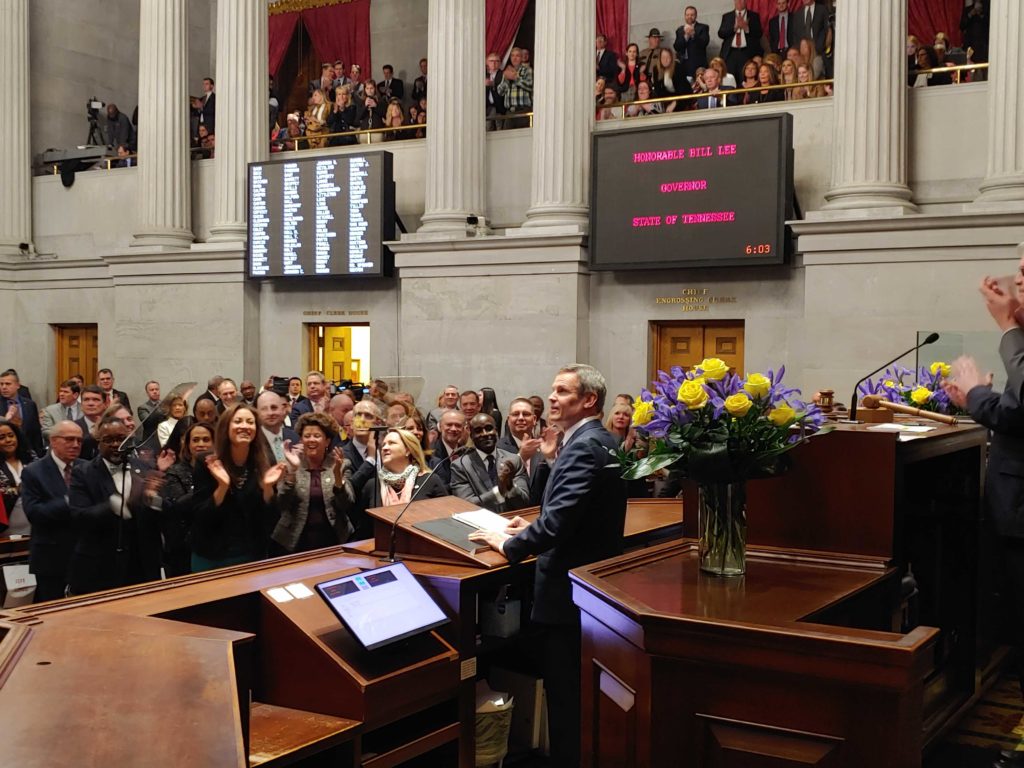
Lee said he wants to create the K-12 Mental Health Trust Fund.
“Scores of teachers and principals, as well as our education commissioner, have pleaded for reinforcements from the state to help schools tackle the mental health and other challenges that students bring with them into the classroom,” Lee said. “That help is on the way.”
Lee proposed the state to make an initial investment of $250 million. He said he expects that fund to grow over the years.
“When a student is struggling, they can either stop the learning process for everyone else in the classroom to help the one student or ignore that student’s needs,” Lee said. “Indeed, our mental health challenges in schools are not just anecdotal.”
But this investment was just one of several announced on education.
Lee’s budget proposal also includes $68.8 million dollars to fully fund the Basic Education Program. That’s the formula Tennessee uses to fund public schools. It also allocates $117 million to up teachers’ salaries.
The governor said this is the “largest investment in K-12 teacher salaries in Tennessee history.” Last year, the governor’s proposal for teacher salaries was $70 million.
“We know it is passion that brings teachers to the classroom, but we also know our teachers deserve to be paid more for the important work they do,” Lee said. “We must also work harder to make teaching a more attractive profession for young people.”
But Democrats in the Tennessee Senate and House remain skeptical about Lee’s proposals in education.
Last week they called on Lee to put $1.5 billion on teacher salaries and the Basic Education Program.
“Tennesseans have heard governors talk that talk before,” Senate Minority Leader Jeff Yarbro said in his response to the governor’s speech. “But if we are really going to do whatever it takes, the governor’s budget and plans need to start matching the ambition of his speech.”
Beth Brown, the president of the Tennessee Education Association, said the investment is not enough.
“The governor said he wants Tennessee to be the best state in the nation to teach, and we agree,” Brown said. “The state increased its cash reserves by more than $1 billion last year. Clearly the governor and General Assembly can and should do more to make teaching a professionally paid career.”
Meanwhile, criminal justice reform was among some issues notably lacking details.
Lee, who has been an advocate, had hinted in the past that he’d focus on reforming the state’s criminal justice system.
Lee said that based on recommendations made by the Criminal Justice Investment Task Force, he will propose legislation that improves community supervision and expand recovery courts.
But it’s unclear what specific proposals the governor is pushing for at this point.

